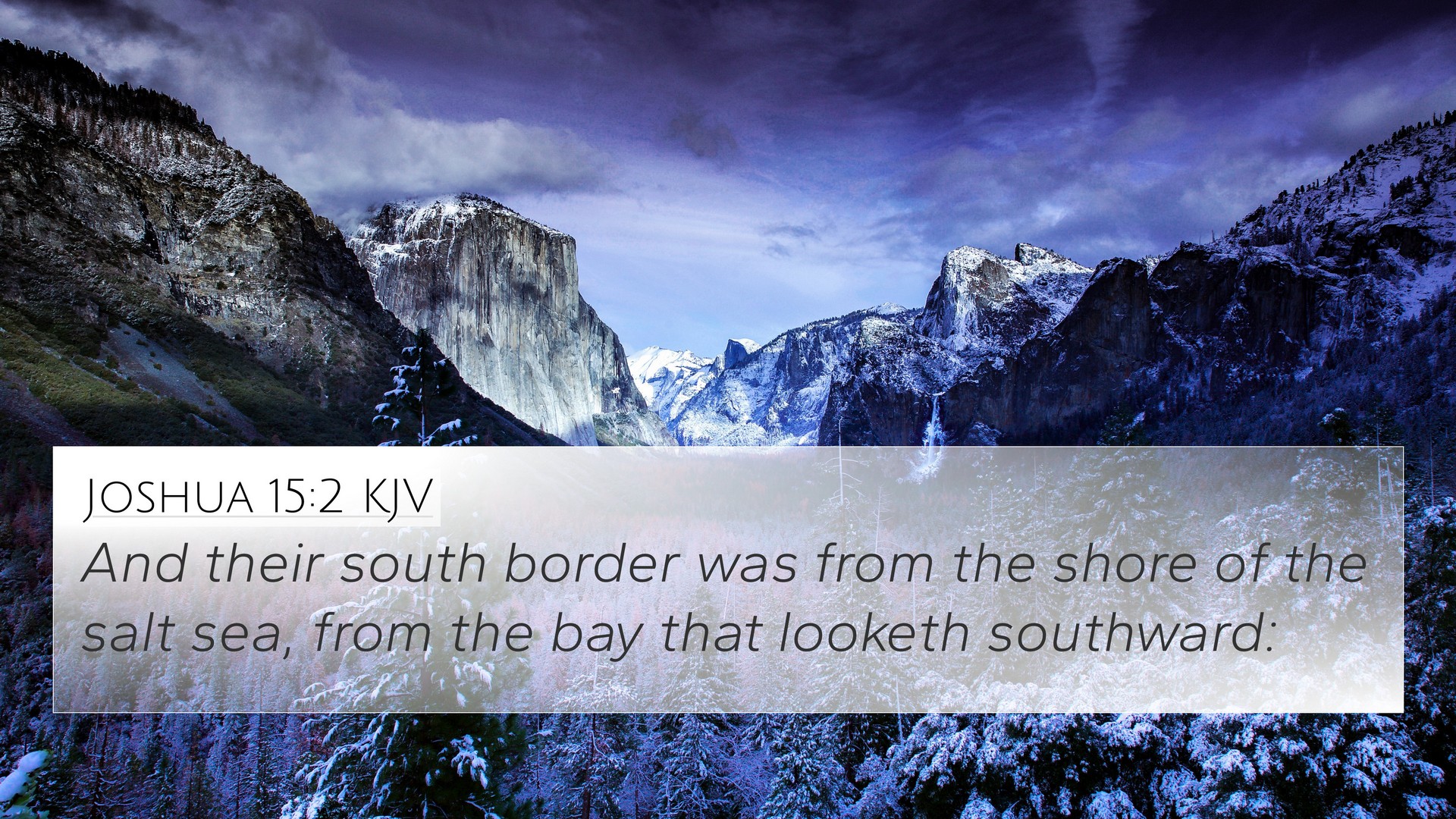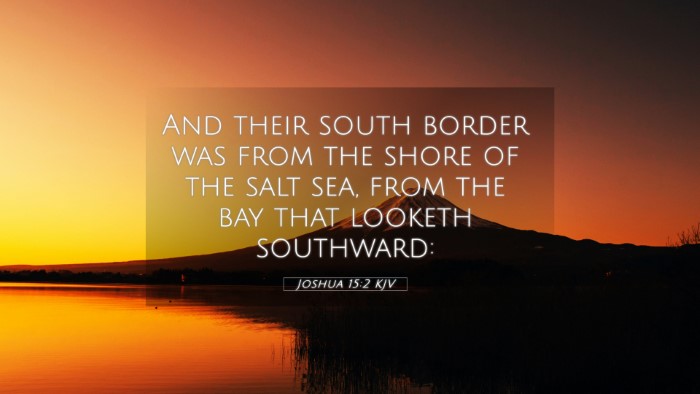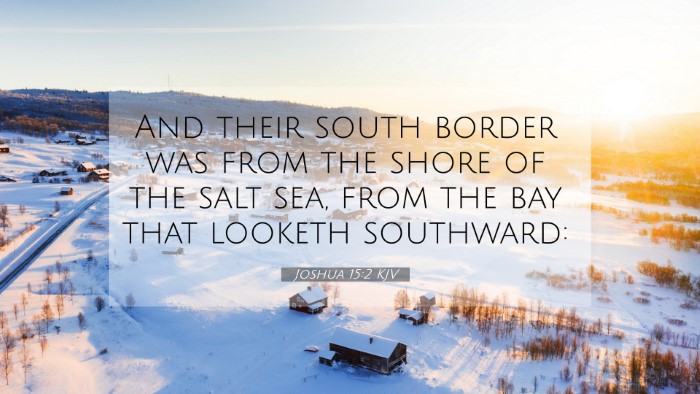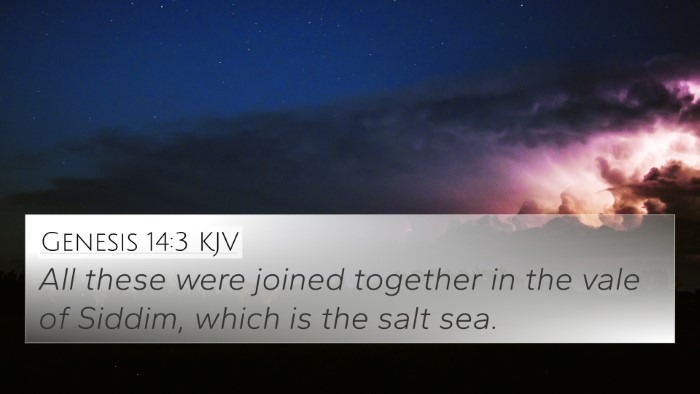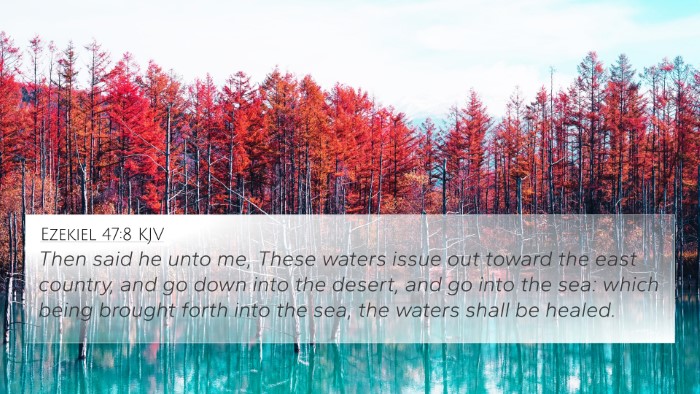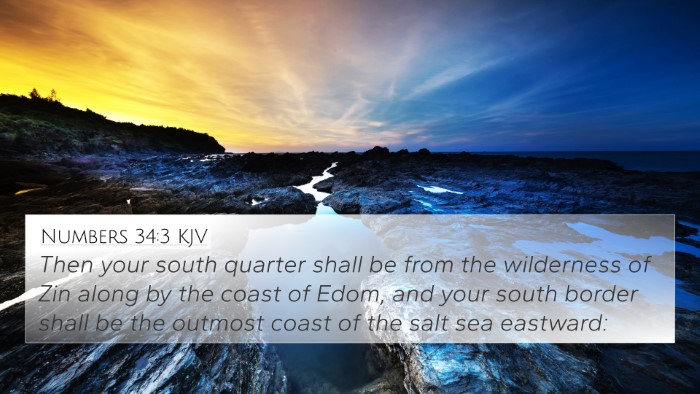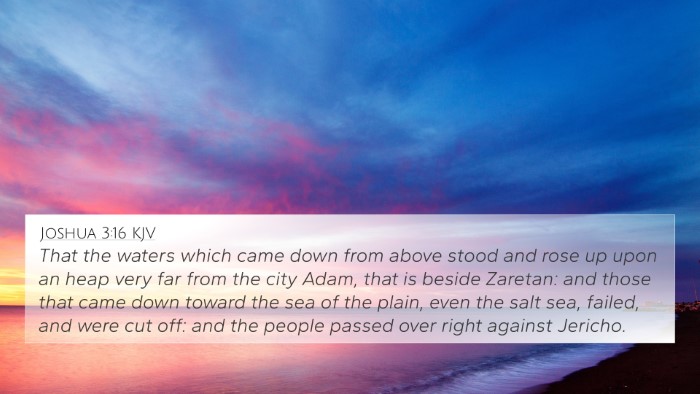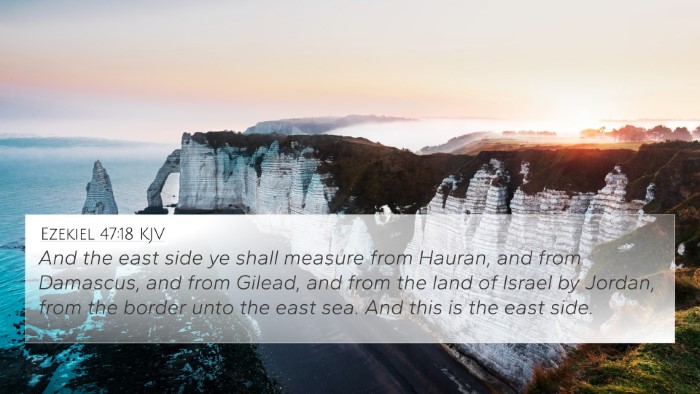Understanding Joshua 15:2
Joshua 15:2 states, "And the lot for the tribe of the children of Judah came up according to their families: and the border of their inheritance was unto the wilderness of Zin southward, to the uttermost part of the south coast." This verse serves as an essential transition within the Book of Joshua, showing the allocation of land to the tribe of Judah. The significance of this verse can be unpacked through insights from various public domain commentaries, illustrating its theological and historical relevance.
Summarized Insights
The following points summarize the interpretations drawn from commentaries such as those by Matthew Henry, Albert Barnes, and Adam Clarke:
- Historical Context: The allocation of land signifies the fulfillment of God's promise to the Israelites, particularly in establishing Judah as a prominent tribe according to God’s divine will.
- Geographical Significance: The mention of the wilderness of Zin establishes geographical boundaries. This is important for understanding the territorial claims and future conflicts the Israelites may face.
- Judah's Eminence: As the first tribe mentioned for land inheritance, Judah is highlighted, setting the stage for its future prominence in Israel's monarchy and the lineage of David, ultimately leading to the Messiah.
- Theological Implications: This verse exemplifies God’s sovereignty in directing the course of history and His people. It underscores the theme of inheritance and division of land as a metaphor for spiritual inheritance in Christ.
- Covenantal Promises: The distribution of land reaffirms God’s covenant with the patriarchs, strengthening the faith of the Israelites in the promises made to their forefathers.
- Community Identity: The inheritance is reflective of family lines and the importance of collective identity in the Israelite community. Each tribe’s land signifies their inheritance in God’s covenant.
- Symbol of Journey: The mention of 'wilderness' relates not only to geography but also to the spiritual journey of the Israelites from the wilderness toward the promised land, symbolizing God's guidance.
Bible Verse Cross-References
To fully appreciate the connections between Bible verses, here are some notable cross-references related to Joshua 15:2:
- Genesis 49:10: Prophetic promise regarding the tribe of Judah, indicating its significance in Israel's future.
- Numbers 34:3-4: Details the southern boundary of the promised land, providing a geographical context.
- Joshua 19:9: Further elaboration on the inheritance of the different tribes and their borders.
- 1 Chronicles 2:3-12: Genealogy of the tribe of Judah, linking familial structures to the land inheritance.
- Isaiah 11:1: A description of the ‘stem of Jesse’ emerges from Judah, pointing towards the Messiah’s lineage.
- Hebrews 7:14: References the significance of Jesus’ descent from the tribe of Judah, establishing his priestly lineage.
- Matthew 1:3-6: Genealogical account of Jesus that affirms the importance of Judah and its heritage.
Tools for Bible Cross-Referencing
Engaging in cross-referencing enriches our understanding of Scripture. Here are some suggested tools for effective Bible cross-referencing:
- Bible Concordance: A resource helping to locate specific words or themes in the Bible.
- Bible Reference Resources: Study Bibles with notes on cross-references enhance understanding of scripture connections.
- Bible Cross-Reference Guide: Various editions provide organized cross-references for in-depth study.
- Comprehensive Bible Cross-Reference Materials: Digital resources offer extensive networks of theological themes across scriptures.
Conclusion
Joshua 15:2 serves as a foundational verse in understanding the land allocation to Judah, reflecting on promises, identity, and divine guidance. By engaging with the insights from various commentaries and utilizing proper tools for cross-referencing, readers can explore the multifaceted connections within the Bible.
